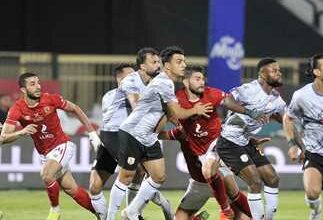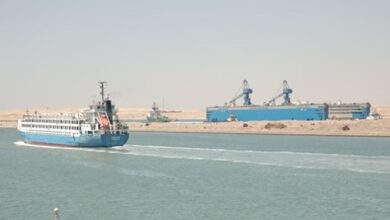Security officers in plain clothes are reported to have roamed Port Said chasing revolutionaries, accusing them of inciting last night’s organized violence in the football stadium, which left more than 70 Ahly Club fans (Ultras) dead and thousands injured.
In order to understand the massacre that happened last night, and the responsibility of the state security apparatus, we need to look deeper at what has been happening in Port Said before and after the 25 January revolution.
Since the revolution, Port Said has become a city void of any security. Paid thugs, or what could be referred to as the regime’s militia, roam the city looting, kidnapping and blackmailing the residents.
Any organized crime becomes extremely easy in such an environment, dominated by armed gangs and drug dealers, a situation that has greatly impoverished the city’s residents. The city’s location as a port north of the Suez Canal makes it vulnerable to such crime and the state security forces have intentionally left the city defenseless.
Those who entered the stadium yesterday with the intention of provoking such violence are the same thugs who have been terrorizing the city’s residents this past year; thugs who have been kidnapping girls and elders for ransom money, without any police deterrence.
The state security and police’s responsibility is not only confined to being incompetent and unwilling to perform their duty to protect the people — they played an active role in orchestrating last night’s massacre.
Several eyewitness accounts say that police opened the stadium gates for the Masry club supporters (mostly from Port Said), inciting them to clash with the Ahly Ultras. But why would the police do such a thing?
Some have argued that the police were taking revenge on the Ahly Ultras for their repeated defiance of state security brutality during the revolution. But it is worth considering that the police were getting back at Port Said’s residents themselves.
Recently, city residents refused to welcome Alexandria’s head of security, who was in office during the murder of Khaled Saeed (Saeed’s torture at the hands of the police was central in mobilizing people in the months leading up to the revolution). On 20 January, a new head of security was appointed in Port Said, who oversaw last night’s massacre in retaliation for the city’s revolutionary stance. But the enmity between Port Said’s residents and state security predates the revolution.
After Mubarak’s attempted assassination in Port Said in 1999, there was a systematic policy to ruin the city. Port Said had thrived on being a duty-free zone north of the Suez Canal. Port Said’s economy sank following the alleged assassination attempt due to state policies that aimed to end the city’s status as a duty-free zone. This has left many unemployed; some have been forced to make a living off of being paid thugs for state security.
This time around, the state thugs who orchestrated the massacre abused football fanaticism to turn other Egyptians against Port Said’s residents, holding them responsible for the massacre.
In recent years, the regime has incited sectarian clashes to create a state of chaos that would put an end to the revolutionary path. This time football fanaticism was the fuel the regime and its security apparatus used to pit Egyptians against each other. Pro-Mubarak sports television hosts have contributed to this incitement, as they have not stopped blaming the revolution for the violence.
After yesterday’s tragedy, residents of Port Said are the ones paying the price. They spent last night in tears. They have also queued in front of hospitals to donate their blood for the victims.
Port Said is my hometown, and I am also an Ahly Club fan. I know how much the residents of this city cherish life and that they would never murder Egypt’s youth. What happened yesterday is the work of the criminal state security, and the Supreme Council of the Armed Forces must be held responsible.
Fayrouz Karawya is an independent artist, writer and researcher.




